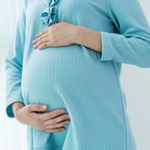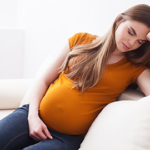There have long been concerns regarding the safety of the anticonvulsant valproate (Depakote) during pregnancy. Back in 2009, the American Academy of Neurology and American Epilepsy Society recommended against the use of valproic acid in women of childbearing age because of the various risks associated with prenatal exposure. Raising similar concerns in 2014, the European Medicine Agency (EMA)’s Pharmacovigilance and Risk Assessment Committee recommended restricting the use of valproic acid in women of reproductive age.
Most recently, the French National Agency for the Safety of Medicines and Health Products (ANSM) announced on July 6th that it will place a ban on the use of valproate by women with bipolar disorder who are either pregnant or of childbearing age with no efficient form of contraception. It is hoped that the other 27 countries in the European Union will soon agree to similar regulations.
This ban reflects data from a recent study (reviewed here) where researchers assessed risk for major malformations associated with prenatal exposure to valproic acid using data from SNIIRAM (French National Health Insurance Information System) from 2011 to 2015. This included 2323 mothers who used valproic acid during pregnancy: 1345 for epilepsy and 978 for bipolar disorder.
The risk for major malformations in children born to women treated with valproic acid for epilepsy was 46.5/1000 compared to 10.2/1000 in the general population. In mothers who took valproic acid for bipolar disorder, the risk was a bit lower (22.2/1000 vs. 10.2/1000). This difference in risk by indication may be related to dose or level of exposure; the authors postulate that women with bipolar disorder may require lower doses of valproic acid and may also be more likely to discontinue treatment than women treated for epilepsy.
The overall risk of having a child with a major malformation is increased about twofold in women with bipolar disorder treated with valproic acid; however, if you look at certain malformations the risk is dramatically increased: hypospadias (17.5% vs. 4.8%) and craniostenosis (4.2% vs. 0.4%).
The French agency did not, however, ban the use of valproic acid in childbearing women with epilepsy because it was felt that adequate treatment alternatives were not available. This decision is somewhat perplexing given that there are currently 24 antiepileptic drugs (AEDs) approved for use in epilepsy in the US by FDA. (Maybe there are fewer options available in France?)
Valproic acid is one of the most potent teratogens out there. Given the countless reports that have documented the negative effects of prenatal exposure to valproic acid on fetal development, it is surprising that it continues to be used in so many women of childbearing age and that many women using this medication are unaware of the risks associated with using this medication during pregnancy.
This is what we recommend regarding the use of valproic acid in women of childbearing age:
- If possible, an alternative to valproic acid should be used in women of reproductive age
- If valproic acid is the only option, women should use effective contraception and should be closely supervised.
- Health care providers who prescribe valproic acid to women of reproductive age must review the reproductive risks associated with this drug and must clearly explain the reason for choosing valproic acid over other options.
- Women taking valproic acid should also take 4mg of folic acid daily to reduce the risk of birth defects in the setting of unplanned pregnancy.
Ruta Nonacs, MD PhD
France bans sodium valproate use in case of pregnancy. Casassus B. Lancet. 2017 Jul 15.








Leave A Comment